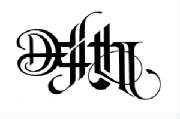|
|
Why Learn About Death? "One can no more look steadily at death than at the sun." La Rochefoucalud "It
is my conviction that death is a perfectly natural, rational, normal, important, and inextricably entwined part of life."
John Abraham I postulate that, more so than others, the death educated person:
Acts to attain his/her life's priorities and values, and consequently improves health in a self-actualizing sense;
Communicates more effectively, honestly and openly on intimate matters with loved ones and with meaningful others;
Relinquishes control more easily, resulting in a more satisfying, appropriate death while death educated survivors manifest a healthier bereavement;
Is likely to espouse alternatives to conflict-resolution other than violence, war and related forms of species-specific deadly aggression;
Recognizes, values, and supports those aspects of society which will promote the health of children, the aged, and other vulnerable groups;
Acts to effect significant positive, healthy social-environmental changes;
May read and discourse upon death rationally, lessening anxiety;
Promotes comfortable and intelligent interaction with the dying as human beings that are indeed living until they are dead;
Grows with a minimum of death-related anxieties. Anxieties are too often based upon irrationality and myth rather than fact;
Develops a personal eschatology by specifying the relationship between life and death;
Understands the dynamics of grief and mourning and the reactions of differing age groups to the death of a "significant other";
Understands the role of those involved in the death system and the assets and liabilities of that system;
Is more savvy about the commercial death market;
Recognizes the variations involved in aspects of death both within and between cultures;
Knows the false idols and mythology existing in the growing field of death study, the salient heuristic questions, and the great need for learning more;
Cultivates a more realistic comprehension of the consequences of such behaviors as drunk driving, consuming drugs, and more;
Appreciates the meaning of and understands the infrequency of school shootings and other mass murders so prevalent in the media;
Has a greater appreciation for LIFE! The topic of death is not part of the family agenda.
When it comes to the one crisis all people will confront, parents become mute. Embarrassed prudery and frightened withdrawal
are manifest from our own gnawing anxieties about death. Because death makes people uncomfortable, we evade the issue
or, by partially informing, succeed only in misinforming. Too often we meet inquiries about death with evasion and subterfuge.
It is a form of ostrich adjustment to neglect one of the essential realities of life: a fraud perpetrated on ourselves, in
ignoring death. People may build up fears about topics hidden from them, which fears grow to be worse than the realities. Death is a biological reality, a cultural phenomenon, a spiritual event, an economic reality and a psychological process. The topic is taboo in our society, making it important to address the reality of death seriously, realistically and helpfully. We sorely need an objective and comprehensive kind of education informing our understanding of death. |

